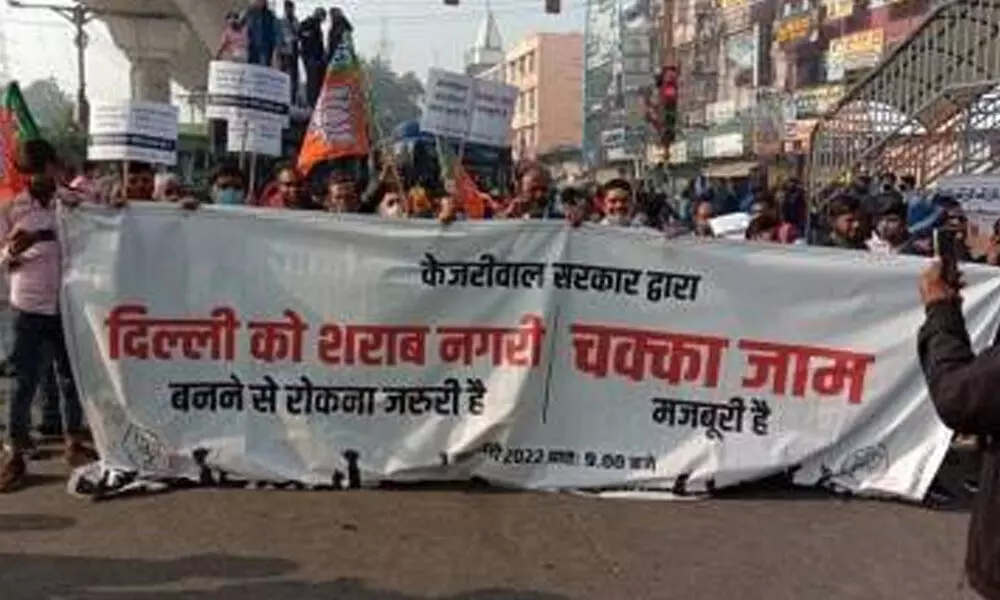BJP Protested Against Delhi Government's Liquor Policy

Long traffic jams were seen in several areas, including ITO, Laxmi Nagar, Akshardham, Signature Bridge, Karol Bagh.
- the Bharatiya Janata Party (BJP) protested against the Delhi government's new liquor policy around the city.
- Leaders in Laxmi Nagar blocked traffic and destroyed bus tyres
On Monday, the Bharatiya Janata Party (BJP) protested the Delhi government's new liquor policy around the city. The Delhi BJP requested a reversal of the policy, alleging that the Aam Admi Party (AAP) government has permitted liquor shops to open in non-conforming locations, including some near schools and places of worship.
ITO, Laxmi Nagar, Akshardham, Signature Bridge, and Karol Bagh were all experiencing long traffic bottlenecks. Leaders in Laxmi Nagar blocked traffic and destroyed bus tyres, reported The Indian Express.
Previously, stores were dispersed unevenly, with some wards having none and others having nine or ten, but now each ward will have an average of three stores. The Delhi administration said that the unequal distribution had fueled the expansion of the booze mafia in underserved areas. The city's overall number of liquor stores has stayed same at 849.














